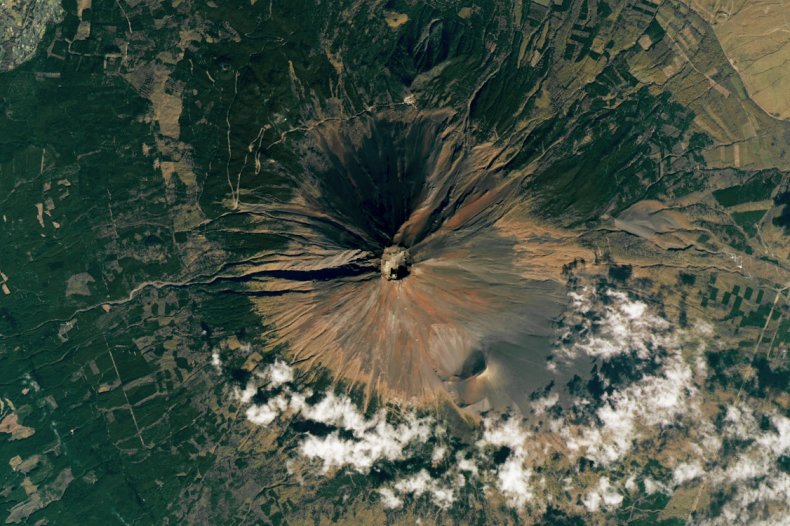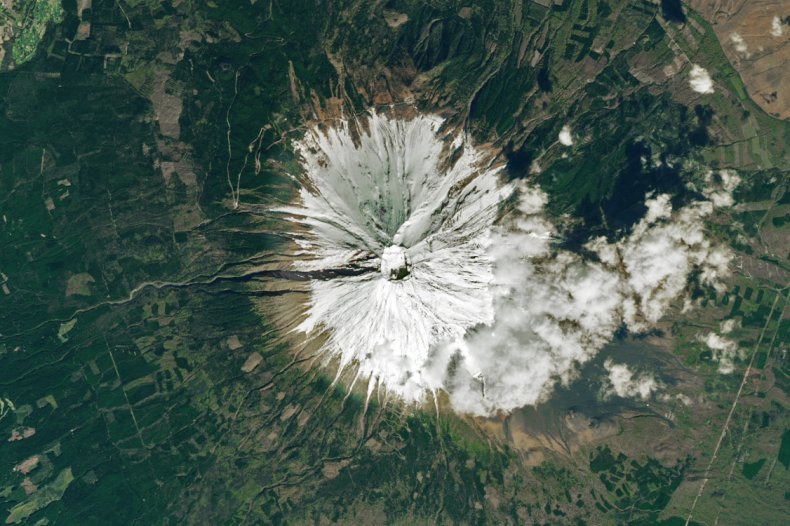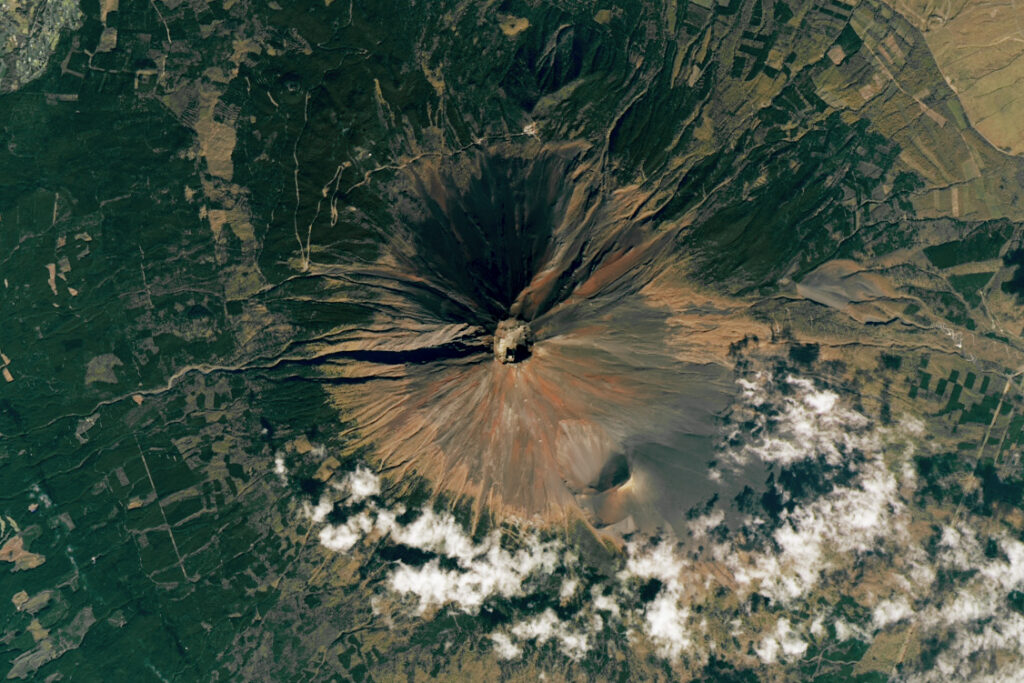Japan’s Mount Fuji has finally been coated in white after it saw its first-ever recorded snow-free October.
The mountain received its first snowfall on November 6, marking the latest first snow since records began some 130 years ago, beating the previous record of October 26 that was set in 1955 and matched in 2016.
Despite the November 6 snowfall, NASA images show that just days later —November 9—this snow had already disappeared.
The images, captured by the OLI (Operational Land Imager) on the Landsat 8 satellite, reveal Mount Fuji’s brown slopes on November 9, in contrast to the white peak from October 30, 2023, snapped by the OLI-2 on Landsat 9. In 2023, the mountain received its first snow on October 5.
Drag slider
compare photos



The 12,388-foot-high volcano usually reports its first snowfall around October 2, so this year’s snow came more than a month later. This comes after Japan had its joint-hottest summer on record, according to the Japan Times, with temperatures 3.17 degrees F warmer than the 1991–2020 average between June and August. October was also abnormally warm, with temperatures between 9 and 14 degrees F higher than normal for this time of year.
“Temperatures were high this summer, and these high temperatures continued into September, deterring cold air,” Yutaka Katsuta, a forecaster at Japan’s Kofu Local Meteorological Office, told Agence France-Presse.
The summit of Fuji itself was also warmer than usual this October, with an average temperature of 34.9 degrees F, compared to the average October temperature of 28.4 degrees F.
Climate change is causing global temperatures to rise, resulting in air near mountain ranges becoming warmer. Precipitation that would typically fall as snow at higher altitudes may therefore instead fall as rain.
One paper published in the journal Nature at the beginning of 2024 revealed that human-caused climate change is a major driver of the loss of snowpacks around the Northern Hemisphere.
Additionally, a new report from the Copernicus Climate Change Service (C3S) found that this October was the second-hottest October on record, with average global temperatures 1.44 degrees F higher than the 1991-2020 average, and 4.97 degrees F higher than average preindustrial temperatures for October.
According to the report, 2024 is extremely likely to be the hottest year ever recorded.
“After 10 months of 2024 it is now virtually certain that 2024 will be the warmest year on record and the first year of more than 1.5 C [2.7 F] above pre-industrial levels according to the ERA5 dataset,” Samantha Burgess, Deputy Director of the Copernicus Climate Change Service (C3S), said in a statement.
In the weeks since November began, Mount Fuji has seen more snowfall, returning to its traditional sight as a snowcapped wonder.
Do you have a tip on a science story that Newsweek should be covering? Do you have a question about snow? Let us know via science@newsweek.com.


AloJapan.com